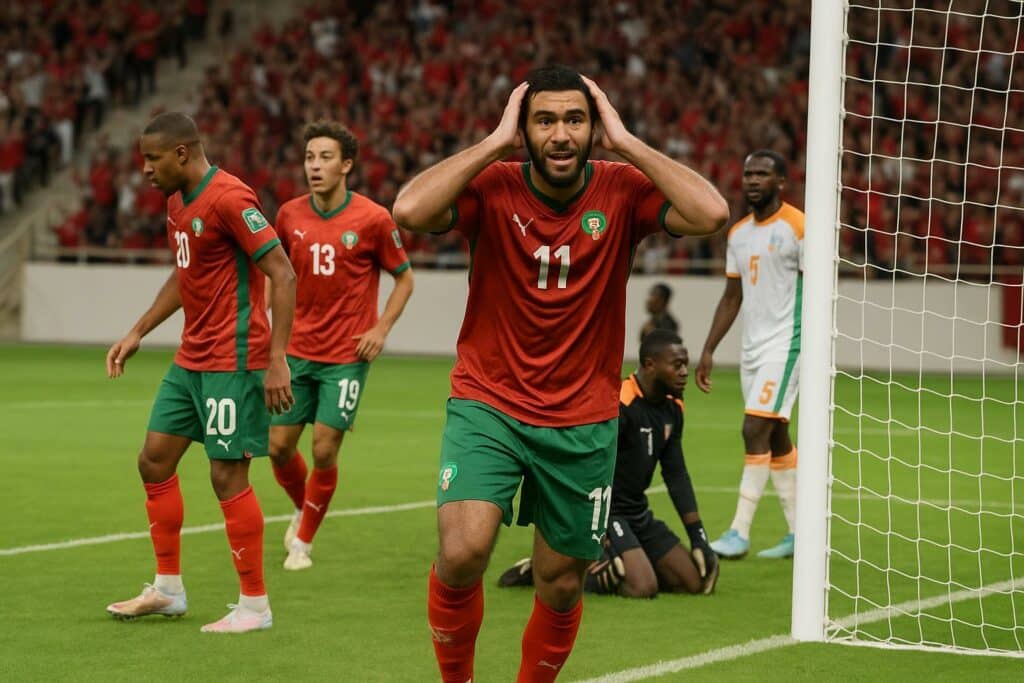A Landmark Night in Rabat
The renovated Moulay Abdellah Sports Complex offered a spectacular setting for Morocco’s decisive 7th-round fixture against Niger. More than a mere qualifier, the encounter evolved into a celebration of national sporting ambition, culminating in a 5-0 scoreline that assured the Atlas Lions of a place at the 2026 FIFA World Cup. The victory—secured on 5 September—marks Morocco’s third consecutive appearance at the tournament and the seventh overall, adding 2026 to the illustrious list of 1970, 1986, 1994 and 1998.
Regragui’s Tactical Mastery and Player Brilliance
Although Walid Regragui’s men needed only a draw, the head coach refused to settle for caution. By deploying an aggressive front three and instructing full-backs to overlap routinely, he transformed a nominally decisive encounter into a showcase of controlled attacking football. Ismael Saibari broke the deadlock in the 29th minute and doubled the tally nine minutes later, exploiting Niger’s narrow defensive block. After the interval, Ayoub El Kaabi added a third, Hamza Igamane swept home the fourth, and Azeddine Ounahi’s late strike capped the evening. Each goal underlined a different facet of Morocco’s evolving repertoire: precision passing, aerial strength and midfield creativity.
Group E Dynamics Now Settled
The result propels Morocco to an unassailable 18-point total—six wins from six—leaving Tanzania on ten, Zambia and Niger on six apiece, and Congo on a solitary point. With the group mathematically decided, Morocco may now rotate personnel during the remaining fixtures, a luxury that permits Regragui to deepen his bench and blood emerging talents without jeopardising competitive integrity. For the trailing sides, the road to the intercontinental play-offs narrows, heightening the strategic weight of every remaining matchday.
Spotlight on the Rebuilt Moulay Abdellah Complex
Unveiled less than twenty-four hours before kick-off, the reconstructed stadium symbolises Morocco’s sustained investment in sporting infrastructure. The venue’s state-of-the-art hybrid turf, expanded seating capacity and improved accessibility contributed to an atmosphere described by local commentators as “electric yet impeccably orderly.” The facility now positions Rabat alongside Casablanca and Tangier as pillars of Morocco’s bid to host high-profile events, including the forthcoming Africa Cup of Nations and potentially World Cup fixtures should co-hosting opportunities arise.
Perspectives Ahead of AFCON 2025
With qualification secured, national focus naturally pivots toward AFCON 2025, scheduled from 21 December 2025 to 18 January 2026 on Moroccan soil. The combination of home advantage and recent World Cup pedigree has raised public expectation of a second continental title. Technical staff emphasise the need to sustain competitive rhythm without fatigue. “The challenge is psychological as much as physical; success breeds expectation, and expectation must be managed,” a senior federation official observed in post-match comments. Training camps, scouting of diaspora talent and sports-science monitoring are expected to intensify over the next eighteen months.
À retenir
Five goals, six wins, zero concessions: Morocco’s qualifying campaign underscores a competitive clarity seldom witnessed in African preliminaries. Beyond statistics, the unity between squad, staff and supporters reflects a mature football culture capable of balancing spectacle with efficiency.
Le point juridique/éco
The immediate economic spin-offs of World Cup qualification include broadcast-rights renegotiations and sponsorship uplifts that benefit both the Royal Moroccan Football Federation and domestic clubs through solidarity payments. Legally, compliance with FIFA’s enhanced governance code remains pivotal; the Federation’s transparent tendering process for stadium renovations and its adherence to player-release protocols during the qualifiers have so far preserved Morocco from the arbitration disputes that periodically mar African campaigns.

